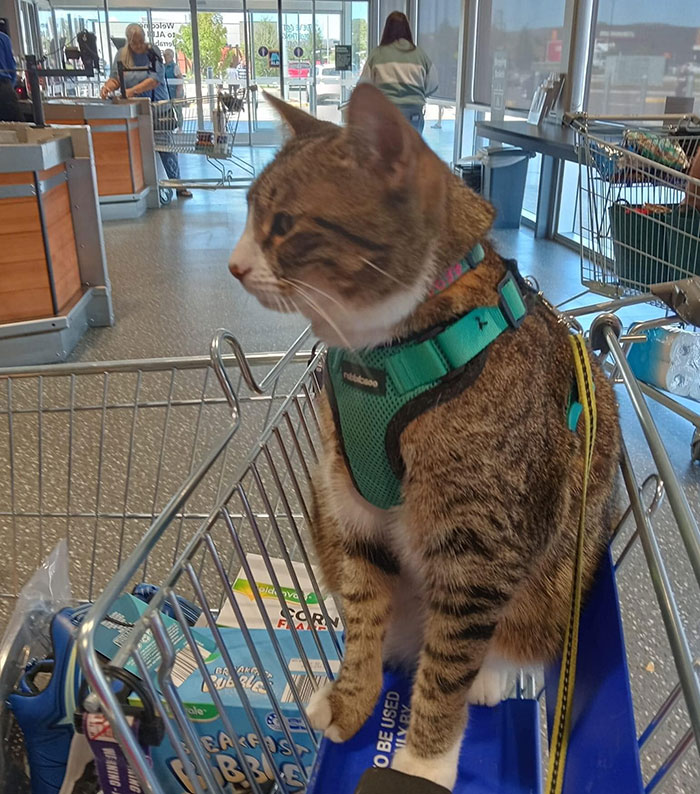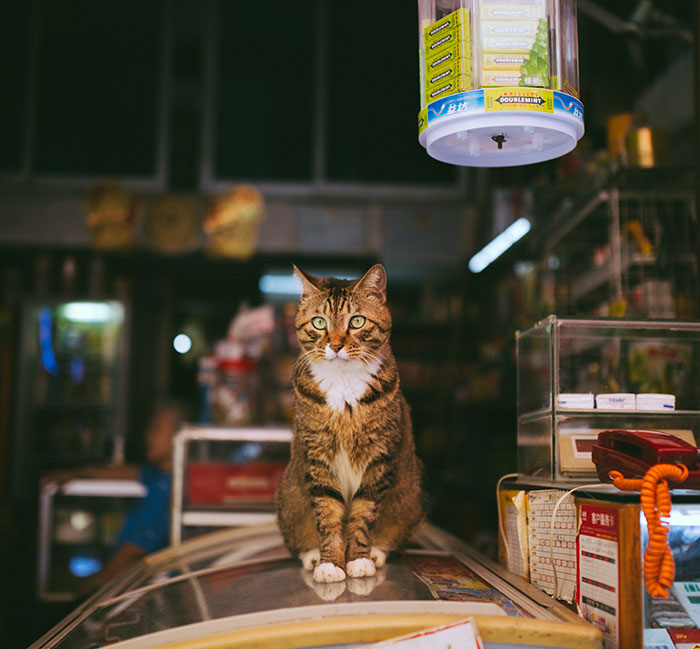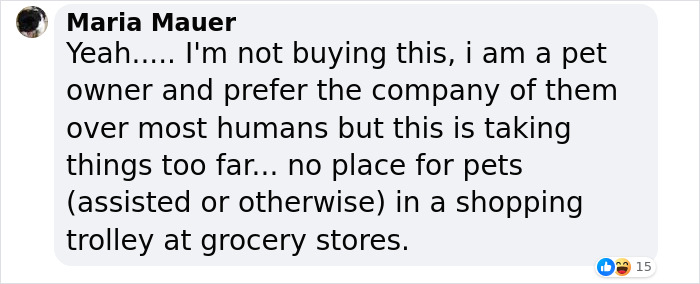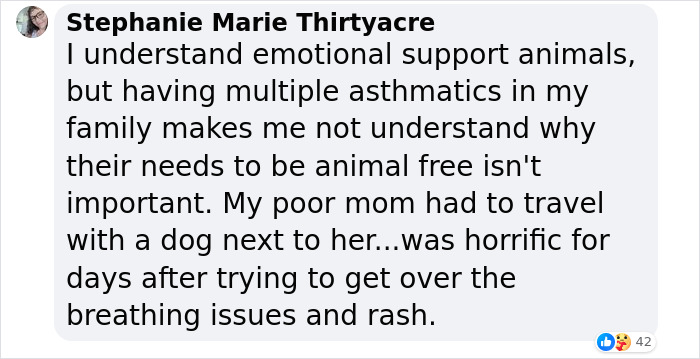Many pet owners probably wish they could magically sneak their furry friends into every nook and cranny of their lives, even in grocery stores where they are almost always forbidden. This desire for constant companionship with pets has just sparked new debates, as seen recently with a controversial photo of a cat in an Aldi shopping trolley, raising concerns over hygiene and highlighting discussions about the rights of assistance animals under disability laws.
A photo circulating on social media of a cat happily sitting in a shopping trolley at an Aldi store in Jerrabomberra in Canberra’s south-west, Australia, has divided shoppers.
Taking to the Aldi Fans in Australia Facebook page last week, a customer uploaded the controversial picture with a caption that read: “Here is something that is rare to see in an Aldi store.
A photo circulating on social media of a cat happily sitting in a shopping trolley at an Aldi store in Australia divided shoppers

Image credits: Anne Marie Powell
“It is the first time I have ever seen an assistance cat anywhere in public.”
The picture in question was rather funny-looking, showcasing the cute feline patiently staying inside the baby seat part of a trolley while wearing a green harness around its neck.
While some Facebook users who commented on the post thought the addition of the animal to the shopping cart was adorable, others slammed the move as “unhygienic,” as per The Daily Mail.
An animal must also be accredited as trained to assist people living with disabilities, Aldi said

Image credits: Ibrahim Guetar
A person commented: “So anyone can buy a harness for an animal and call it an assistance pet and take it anywhere. Ridiculous.”
Another commentator wrote: “Yuck! Assistance or not. I don’t believe animals should be allowed in our trolleys where we put our food.”
An additional Facebook user penned: “How unhygienic to have a cat in a food supermarket.”
Other angry Aldi fans pointed out they were allergic to cats and argued that the animal posed a health hazard, as a person wrote: “My kids would be in trouble if they sat there after this cat! They have severe allergies.”
Some people thought the addition of the animal to the shopping cart was adorable while others slammed the move as “unhygienic”

Image credits: rawpixel
A handful of people were more focused on maintaining respect for those who need an assistance animal to help with their disabilities.
A spokesperson for the German supermarket chain said the company’s policy on animals was guided by the Disability Discrimination Act 1992 (Australia), as per the Daily Mail.
The Act states a creature is considered an assistance animal if it is “trained to assist a person with a disability.” Moreover, the animal must also be accredited as trained to assist people living with disabilities under the law of a state or territory.
Additionally, the animal must “meet the standards of hygiene and behavior that are appropriate for an animal in a public place,” as well as help people living with disabilities in conducting everyday tasks.
Cats can be emotional support animals, US Service Animals said

Image credits: InstaWalli
Service dogs are most notably used as assistance animals. According to the United Disabilities Services Foundation, service dogs play a vital role in the lives of people with disabilities ranging from autism to muscular dystrophy. They also help their owners perform day-to-day tasks, and some are specially trained for people with diabetes, epilepsy, or PTSD.
Nevertheless, US Service Animals notes that cats can be emotional support animals, even if they can’t be trained as service animals.
While service animals are trained to perform specific tasks for individuals with disabilities, therapy animals provide comfort and emotional support in various settings. Moreover, emotional support animals offer companionship and support to individuals with mental health conditions.
Each type of animal serves a distinct purpose and has different legal rights and protections.
The cat picture posted on Facebook ignited more divided feelings




















 English (US) ·
English (US) ·